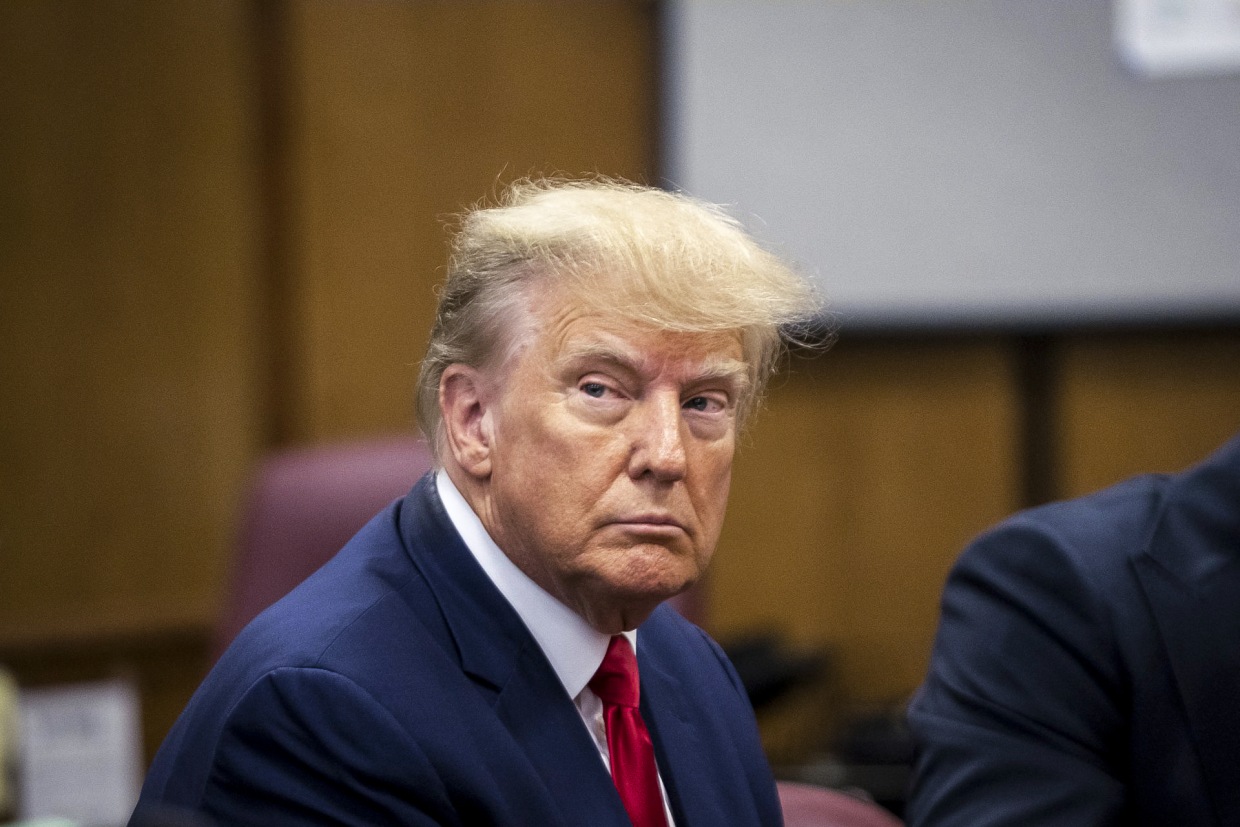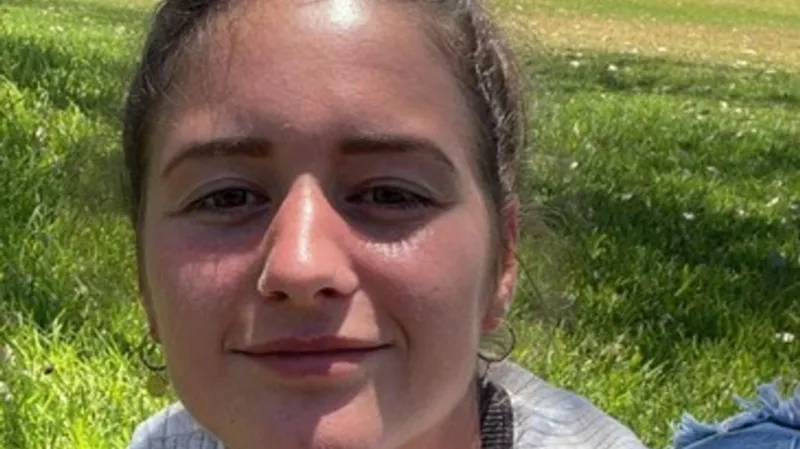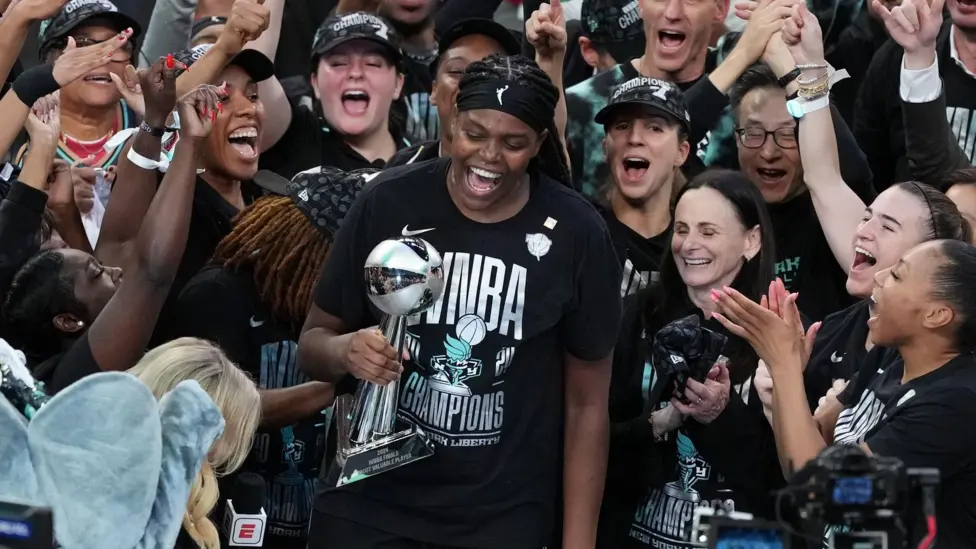Trump's court drama turbo-charges his campaign
Donald Trump's indictment played out in two courts on Tuesday - a federal courtroom in Florida and the court of public opinion.

Inside the Miami courthouse, Mr Trump and his legal team were measured. One of his lawyers told the judge that the former president was pleading not guilty to all 37 charges relating to his alleged mishandling of US government secrets.
There was some back-and-forth over what kind of contact Mr Trump could have with potential witnesses, before he was released without any restrictions on his travel.
Outside the courthouse, and on social media, it was a very different scene.
Throughout the day, the former president posted to his Truth Social website, insulting special counsel Jack Smith and questioning why he wasn't investigating alleged crimes by Democrats.
"One of the saddest days in the history of our country," he wrote. "We are a nation in decline!!!"
That's standard rhetorical fare for Mr Trump, who tends to launch his fiercest attacks when he feels the most threatened.
The other message Mr Trump sent following his arraignment was a more subtle political one, albeit delivered with typical Trumpian showmanship.
His motorcade stopped at Versailles Restaurant, a Cuban cafe and bakery popular with residents of the Little Havana neighbourhood and tourists alike. While there, he shook hands, took pictures and made brief remarks, as patrons serenaded the soon-to-be 77-year-old former president with a rendition of Happy Birthday.
It looked and felt like a typical meet-and-greet for a campaigning politician in a key battleground state. It was a visible sign that, for Mr Trump, his bid for the White House is marching forward, indictments be damned.
That is not exactly great news for Mr Trump's Republican presidential rivals, who have been grappling with how to respond to his latest indictment.
Some, like former governors Chris Christie and Asa Hutchinson, have gone on the attack, criticising the former president's conduct and calling on him to end his campaign.
Ron DeSantis, the closest to Mr Trump in the polls, has directed his fire at federal prosecutors. It is perhaps a reflection that the Florida governor is particularly wary of angering Trump supporters, whom polls show frequently view him as their second choice.
Former Vice-President Mike Pence and Trump UN Ambassador Nikki Haley fall somewhere in the middle, trying to walk a fine line between criticising their Republican rival while not provoking the ire of his supporters.
Sometimes that walk can seem more of a stagger.
Last week, Ms Haley said the indictment "is not how justice should be pursued in our country". On Monday, she slammed Mr Trump for being "incredibly reckless" with US national security. On Tuesday, she stood by that remark, but went on to say that she would be "inclined" to pardon Mr Trump if she were to become president.
"It would be terrible for the country to have a former president in prison for years because of a documents case," she said.
All of this becomes more complicated as many Republican politicians appear to be moving to a (political) war footing.
"We're not going to stand for it," Speaker of the House Kevin McCarthy said of the indictment. Republicans in the chamber are promising an aggressive investigation of the justice department's handling of the case.
Senator JD Vance of Ohio pledged to slow down confirmation of three of Mr Biden's nominees to the justice department, threatening to "grind his department to a halt".
The more Mr Trump's indictment becomes framed as a Biden-versus-Republicans clash, the more any criticism of the former president will be seen as giving comfort to political adversaries - and the greater the risk of going on the attack.
All of this could obscure what is the real mystery at the heart of this new indictment and what could be Mr Trump's greatest weakness in this case.
In Mr Trump's first indictment, in New York, the motive seems clear. Who wouldn't want to avoid an embarrassing allegation of an adulterous affair with an adult film star surfacing right before election day? The charged business fraud crimes, however, involve what legal experts see as an unusual interpretation of state law.
In the federal case, the crimes are straightforward. Mr Trump is accused of mishandling sensitive government information, obstructing a federal inquiry and lying to federal investigators. It's the motive that remains unclear.
Why didn't Mr Trump turn over all the classified documents when the government came calling? Why did he dig in and fight investigators, when co-operation might have ended the investigation?
Mr Trump's rivals might want to try to make him answer these questions - and do so in a way that convinces Republican voters that he does not deserve to be the party's nominee.
To win, they might have to make the former president explain himself.
-bbc







